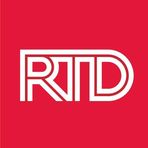Turbulence on the RTD Board: A Call for Professionalism and Respect
June 15, 2025, 3:50 am

Location: United States, Colorado, City and County of Denver
Employees: 1001-5000
Founded date: 1969
The Regional Transportation District (RTD) board is facing a storm. A recent investigation into the conduct of Director JoyAnn Ruscha has raised questions about professionalism and respect within the board. The fallout from this situation could reshape the dynamics of the board and its effectiveness in serving the public.
Discipline among board members is rare in RTD’s history. It’s been over 25 years since such action was considered. Yet, the current climate suggests that change is overdue. A letter from fellow board member, Bouquet, has put Ruscha’s behavior under the microscope. The allegations are serious: unprofessional communication, disrespect for colleagues, and violations of open-meetings laws.
Ruscha, who represents a northeast section of Denver, has been accused of sending condescending emails to fellow directors. One email to Director Brett Paglieri, who is just 25, admonished him for his work ethic. Ruscha suggested that if Paglieri couldn’t commit fully, he should resign. This kind of communication is not just a breach of etiquette; it undermines the collaborative spirit essential for effective governance.
The board’s investigation was prompted by a letter signed by eight directors. They expressed concern over Ruscha’s behavior, describing it as “absolutely unacceptable.” The tone of Ruscha’s emails has been labeled as dismissive and rude. Such behavior not only affects internal relationships but also erodes public trust. Directors are elected to serve the community, and when they fail to uphold standards of civility, they let down those they represent.
Ruscha’s defense is rooted in a belief that the disputes stem from policy differences rather than personal conduct. They argue that some charges are vaguely defined and that communication challenges exist due to hearing difficulties. However, the essence of the matter lies in the impact of their words. Communication is the lifeblood of any organization. When it becomes toxic, the entire system suffers.
The board’s response to Ruscha’s behavior has been mixed. Some members defend Ruscha, citing their intelligence and commitment to equity. They argue that directness is often misinterpreted as harshness. Yet, the line between assertiveness and disrespect is thin. Leadership requires not just knowledge but also the ability to inspire and uplift others.
Paglieri, the target of Ruscha’s emails, expressed disappointment. He expected mentorship but received a personal attack instead. This incident highlights a critical failure in leadership. It’s not just about being right; it’s about how one communicates that truth. A leader’s role is to guide, not to belittle.
The RTD board is not new to conflict. Historical accounts reveal a tumultuous past filled with personal insults and threats. However, the current situation is different. The board has an opportunity to set a new standard. It can choose to prioritize respect and professionalism over personal grievances.
The proposed solution from Ruscha—a special retreat with a skilled facilitator—could be a step in the right direction. It suggests a willingness to engage in dialogue and reflection. However, the effectiveness of such a retreat hinges on the board’s commitment to change. It’s not enough to acknowledge the problem; action must follow.
In the backdrop of this internal strife, RTD is also navigating external challenges. Plans for a public transportation project to Red Rocks are underway, but operational changes threaten its viability. The proposed service aims to connect downtown Denver with one of the nation’s premier concert venues. Yet, low ridership has led to reduced hours, complicating the initiative. This situation underscores the need for a cohesive and respectful board. If internal conflicts distract from strategic planning, the community suffers.
The Red Rocks project is not just about concerts; it’s about accessibility and environmental responsibility. The partnership with GreenLatinos highlights the intersection of social justice and public transportation. The board must recognize that its decisions impact not only its members but also the broader community.
As the RTD board grapples with these issues, it stands at a crossroads. It can either continue down a path of discord or choose to foster an environment of respect and collaboration. The stakes are high. Public trust is fragile, and the community deserves leaders who embody the values they espouse.
In conclusion, the RTD board must reflect on its conduct and the implications of its actions. Professionalism and respect are not just buzzwords; they are essential for effective governance. The current turmoil presents an opportunity for growth. It’s time for the board to rise above personal conflicts and focus on its mission: serving the public with integrity and respect. The future of RTD depends on it.
Discipline among board members is rare in RTD’s history. It’s been over 25 years since such action was considered. Yet, the current climate suggests that change is overdue. A letter from fellow board member, Bouquet, has put Ruscha’s behavior under the microscope. The allegations are serious: unprofessional communication, disrespect for colleagues, and violations of open-meetings laws.
Ruscha, who represents a northeast section of Denver, has been accused of sending condescending emails to fellow directors. One email to Director Brett Paglieri, who is just 25, admonished him for his work ethic. Ruscha suggested that if Paglieri couldn’t commit fully, he should resign. This kind of communication is not just a breach of etiquette; it undermines the collaborative spirit essential for effective governance.
The board’s investigation was prompted by a letter signed by eight directors. They expressed concern over Ruscha’s behavior, describing it as “absolutely unacceptable.” The tone of Ruscha’s emails has been labeled as dismissive and rude. Such behavior not only affects internal relationships but also erodes public trust. Directors are elected to serve the community, and when they fail to uphold standards of civility, they let down those they represent.
Ruscha’s defense is rooted in a belief that the disputes stem from policy differences rather than personal conduct. They argue that some charges are vaguely defined and that communication challenges exist due to hearing difficulties. However, the essence of the matter lies in the impact of their words. Communication is the lifeblood of any organization. When it becomes toxic, the entire system suffers.
The board’s response to Ruscha’s behavior has been mixed. Some members defend Ruscha, citing their intelligence and commitment to equity. They argue that directness is often misinterpreted as harshness. Yet, the line between assertiveness and disrespect is thin. Leadership requires not just knowledge but also the ability to inspire and uplift others.
Paglieri, the target of Ruscha’s emails, expressed disappointment. He expected mentorship but received a personal attack instead. This incident highlights a critical failure in leadership. It’s not just about being right; it’s about how one communicates that truth. A leader’s role is to guide, not to belittle.
The RTD board is not new to conflict. Historical accounts reveal a tumultuous past filled with personal insults and threats. However, the current situation is different. The board has an opportunity to set a new standard. It can choose to prioritize respect and professionalism over personal grievances.
The proposed solution from Ruscha—a special retreat with a skilled facilitator—could be a step in the right direction. It suggests a willingness to engage in dialogue and reflection. However, the effectiveness of such a retreat hinges on the board’s commitment to change. It’s not enough to acknowledge the problem; action must follow.
In the backdrop of this internal strife, RTD is also navigating external challenges. Plans for a public transportation project to Red Rocks are underway, but operational changes threaten its viability. The proposed service aims to connect downtown Denver with one of the nation’s premier concert venues. Yet, low ridership has led to reduced hours, complicating the initiative. This situation underscores the need for a cohesive and respectful board. If internal conflicts distract from strategic planning, the community suffers.
The Red Rocks project is not just about concerts; it’s about accessibility and environmental responsibility. The partnership with GreenLatinos highlights the intersection of social justice and public transportation. The board must recognize that its decisions impact not only its members but also the broader community.
As the RTD board grapples with these issues, it stands at a crossroads. It can either continue down a path of discord or choose to foster an environment of respect and collaboration. The stakes are high. Public trust is fragile, and the community deserves leaders who embody the values they espouse.
In conclusion, the RTD board must reflect on its conduct and the implications of its actions. Professionalism and respect are not just buzzwords; they are essential for effective governance. The current turmoil presents an opportunity for growth. It’s time for the board to rise above personal conflicts and focus on its mission: serving the public with integrity and respect. The future of RTD depends on it.
